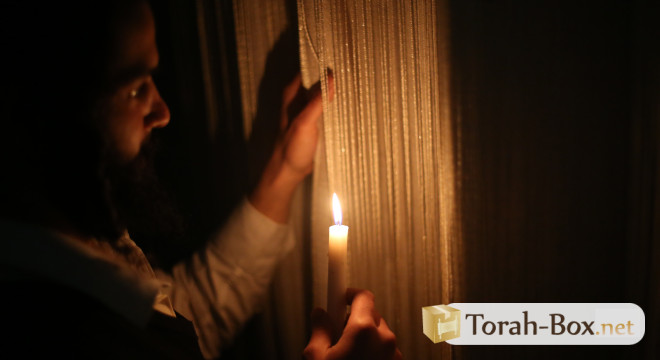
Passover
A Search for Extraordinary Chametz
This story took place during the Cold War. At that time, life was almost impossible for Jews living in Leningrad. When a non-Jew worked long hours throughout the week, he hardly earnt enough to feed his family. But when a Jew tried to make a living, he had even more obstacles to overcome.
Working in any government job was torturous. If they arrived 5 minutes late, they received a warning and a pay cut. If they were late a second time, they were fired and had to sit in a local prison for a while. But nobody dared to complain, because if they made the slightest comment, they were sent directly to Siberia, where the temperatures were below freezing. Once a man was exiled there, he was never heard from again. Jews lived in terror that their religious practice, forbidden at this time, be discovered. All this pressure forced hundreds of thousands of Jews to stop keeping Shabbat and to leave the Torah.
But Yitzchak Krasik did not want to give up his Judaism. Neither hunger, political pressure nor fear would prevent him from respecting the divine will. One day, the first Saturday morning of his new job, he arrived wearing a false bandage on his head to try to get a day off so he would not have to desecrate Shabbat. The following Saturday, he arrived complaining of another pain. His director gave him work breaks for the first few Shabbatot, but he eventually noticed that every Shabbat Yitzchak came up with a different excuse.
Finally, the director summoned Yitzchak and informed him that if he persisted in not wanting to work on Shabbat, he would be obliged to dismiss him or to report him to the authorities. Realizing that he had no chance of winning, Yitzchak implored his boss not to denounce him, even if he fired him. The director agreed, but a few weeks later, Yitzchak was fired and started looking for a new job.
However, no one was willing to turn a blind eye to his absence from work every Saturday. The weeks turned into months, and the Krasik family was desperately short of food.
As Pesach approached, the house was completely empty, with no trace of food. The whole family was exhausted and hungry. The day before the 14th of Nissan, the moment arrived when it was necessary to carry out the search for Chametz. But for the Krasik family, there was no point in searching their empty home to find bread, and in any case, how could they search for Chametz at a time when the whole family was starving?
Yitzchak thought that in such a case he may not be required to look for Chametz, but his love for the Mitzvot made him ask a Rav to be sure. After listening to the case, the Rav answered Yitzchak:
''The idea of completely ignoring the search for Chametz is unfounded. We must look for Chametz because it is Hashem's command, and not because we have to find Chametz.
In spite of the hunger that plagued him, Yitzchak was happy to finally be able to perform the Mitzvah of searching for Chametz. Once night fell, using the light of a candle, he searched one room after the other, on the lookout for the smallest crumb of bread or cake.
As he prepared to finish, his eyes rested on ... a big loaf of bread! Yitzchak could not believe it. Where could this bread have come from? He was sure he had no food left at home. And now this bread appeared, as if by magic ...
After that, the whole family sat at the table and thanked Hashem for this great miracle. Despite all the difficulties he faced, Yitzchak's determination to fulfill the Mitzvot never wavered, and he was finally rewarded for his efforts.
When we witness the immense sacrifices made by the Jews in the most difficult circumstances, we can all be inspired to introduce changes in our own existence, reaffirming our commitment to observe the Mitzvot of Hashem.
Torah-Box.net Account
To access the entire Torah-Box.net website, sign up for free in less than a minute.
Weekly Parsha
 Candle Lighting - New York
Candle Lighting - New York
Friday December 19th, 2025 at 16:13 *Shabbat ends at 17:17 *
change my location
* Times given as an indication, check the times of your community









